While awareness of neurodivergence in the workplace is growing, there’s still a long way to go in closing the employment gap. According to gov.uk, less than a third (31%) of autistic adults in the UK are in employment, compared to 75% of the general population.
As Associate Director at Tiger Recruitment with nearly 20 years of experience in the industry, inclusive recruitment has always been a passion of mine. Since moving into a leadership role, I feel an even greater responsibility to drive change.
Hiring managers are happy to offer reasonable adjustments when candidates ask for them, from their point of view, they feel they’re being supportive. What many don’t realise is that applicants may not feel confident enough to disclose their neurodivergence. As a result, they may turn down opportunities due to a lack of support during the hiring process, often seen as a sign they won’t be supported in the role itself.
One of the most common reasons I hear employers give for not adapting their hiring or onboarding process is a lack of time or budget. However, there are several small changes businesses can make that can have a significant impact on neurodivergent candidates:
1. Normalise disclosure
Even if candidates aren’t ready to disclose their neurodivergence, asking about adjustments early on helps create a sense of safety and inclusion.
2. Share interview questions in advance
Individuals with ADHD or autism often benefit from having extra time to process information. Sharing interview questions in advance gives candidates the opportunity to consider their responses carefully. My clients who have actioned this felt more prepared, and the quality of candidate answers were so much better. It’s a win-win!
3. Be clear about timelines
Some organisations offer financial support for travel or childcare to help candidates attend in-person interviews. For those unable to offer such benefits, clearly communicating the interview date, time, and location at an early stage can be just as helpful. With enough notice, candidates can make the necessary arrangements and are less likely to drop out due to disruption.
4. Provide a clear onboarding plan
New environments can be particularly challenging for neurodivergent individuals. A detailed onboarding plan outlines what to expect, helping to reduce stress and give them a sense of control. A written plan is especially useful, allowing them to revisit the information and process it at their own pace.
It’s essential that inclusive recruitment policies are embedded throughout the organisation, not just used as an attraction tool. This lays the groundwork for long-term retention and success for neurodivergent hires. If you’d like advice on inclusive hiring, onboarding, or workplace adjustments, I’d love to speak to you!




